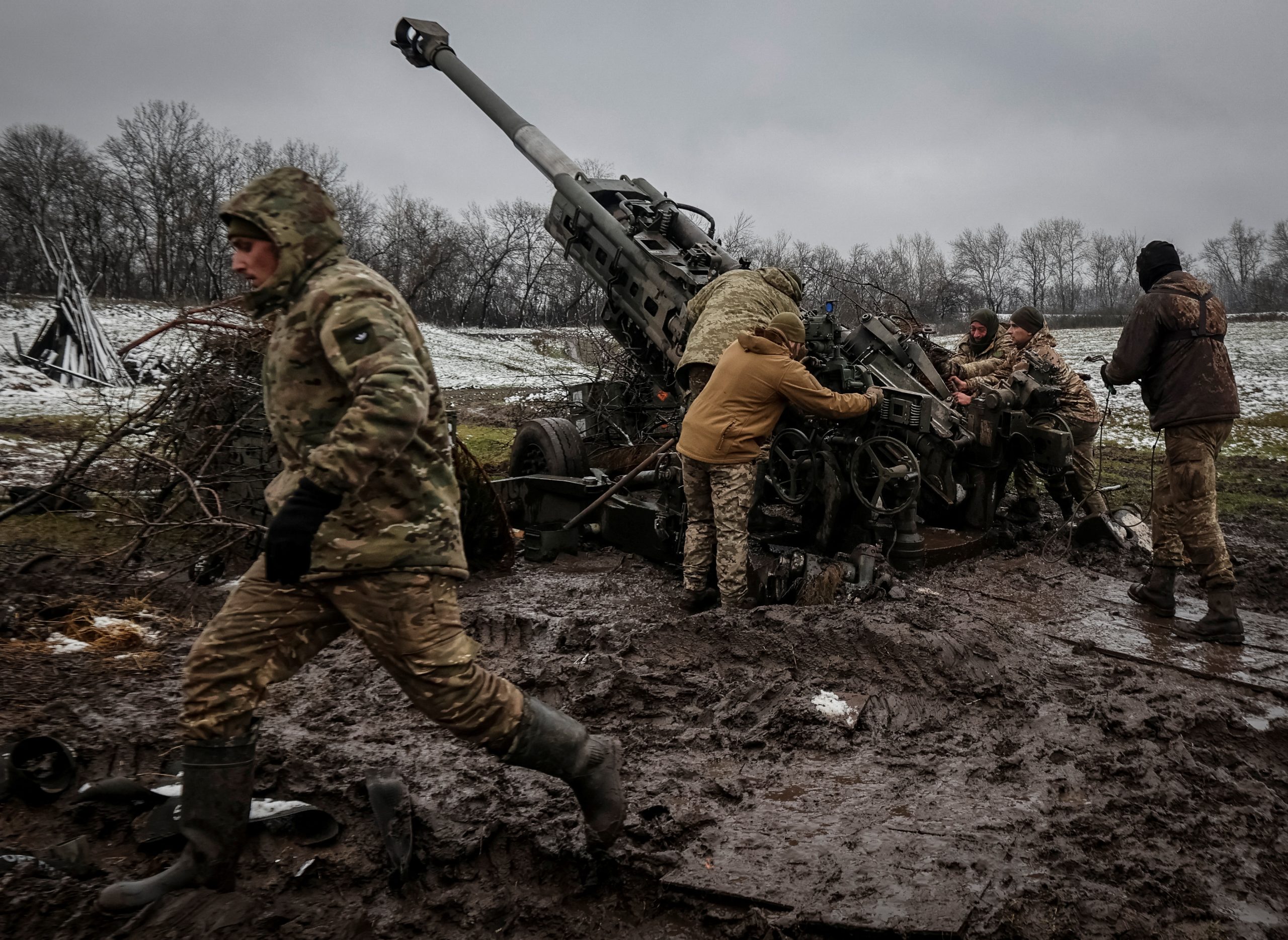
Chris Lange, FISM News
[elfsight_social_share_buttons id=”1″]
The Defense Department is weighing a handful of proposals for the production of weapons systems as the Biden administration struggles to keep up with Ukraine’s constant demand for more weapons at a time when U.S. inventories are rapidly shrinking.
Among the proposals being considered is Boeing’s proffered Ground-Launched Small Diameter Bomb (GLSDB), which involves affixing compact precision bombs to rockets that are already available.
GLSDB combines the GBU-39 Small Diameter Bomb (SDB) with the M26 rocket motor, both of which would come from U.S. inventories, according to a document reviewed by Reuters.
“It’s about getting quantity at a cheap cost,” Tom Karako, weapons and security expert at the Center for Strategic and International Studies, told the news service. He said that U.S. stockpiles are “getting low relative to the levels we like to keep on hand and certainly to the levels we’re going to need to deter a China conflict,” which he said explains the scramble to manufacture more arms for Ukraine.
Karako pointed out that the U.S. pullout from Afghanistan left a stockpile of unused air-dropped bombs but said that they cannot be easily modified for use with Ukrainian aircraft, adding that “in today’s context, we should be looking for innovative ways to convert them to standoff capability.”
The GLSDB systems could be available as early as the spring of 2023.
This comes as GOP House members have warned that once they take over the majority there will no longer be a “blank check” for Ukraine.
On Sunday, Reps. Michael McCaul (R-Texas) and Mike Turner (R-Ohio) went on ABC’s This Week saying that while there will still be bipartisan support for Ukraine, it shouldn’t be done through “$40 billion large Democrat bills.”
Rep. Mike Turner tells @MarthaRaddatz it's "frustrating" for Ukrainians to hear figures of "burgeoned Democrat bills and the little amount of aid that they receive."
“We don’t need to pass $40 billion large Democrat bills…to send $8 billion to Ukraine.” https://t.co/EQB6sgjdTI pic.twitter.com/09eFlAN5WK
— This Week (@ThisWeekABC) November 28, 2022
“I think the majorities on both sides of the aisle support this effort,” McCaul said. “I think everybody has a voice in Congress. And the fact is, we are going to provide more oversight, transparency, and accountability.
Zelenskyy tells Ukrainians to brace for another week of outages
President Volodymyr Zelenskyy urged Ukrainians to brace for another week of power outages amid freezing temperatures, warning that Russia was “planning new strikes” on his country.
“We understand that the terrorists are planning new strikes. We know this for a fact,” he said in his nightly video address on Sunday. “And as long as they have missiles, they, unfortunately, will not calm down.”
Sunday night brought a fresh blanket of snow and near-freezing temperatures to Kyiv as millions in Ukraine’s capital city and surrounding areas faced electricity and central heating outages as a result of continued Russian strikes.
City authorities said that workers struggling around the clock to restore power, water, and heat were forced to impose blackouts in some areas due to high consumption levels.
Zelenskyy also issued a rare wartime criticism of a Ukrainian official, accusing Kyiv Mayor Vitali Klitschko of not doing enough to help struggling residents. Klitschko shot back that it was “senseless” to engage in political infighting in the midst of Russia’s military campaign.
Meanwhile, the General Staff of Ukraine’s military command said on Monday that its forces repelled several Russian attacks in the Donetsk region where fighting remains intense.
Heavy fighting also continued in the recaptured Kharkiv region in the northeast, Reuters reported, citing Ukrainian military analyst Oleh Zhdanov.
Zaporizhzhia nuclear plant may be abandoned soon
The head of Energoatom, Ukraine’s state-run nuclear energy firm, said on Sunday that there were signs that Russian forces might be preparing to abandon the Zaporizhzhia nuclear power plant in Enerhodar, which they have occupied since March.
“One gets the impression they’re packing their bags and stealing everything they can,” Petro Kotin said on national television.
Russian-backed officials in the region denied the report.
“The media are actively spreading fakes that Russia is allegedly planning to withdraw from Enerhodar and leave the (nuclear plant). This information is not true,” the Enerhodar administration said on the Telegram messaging app.
The Zaporizhzhia plant, Europe’s largest nuclear power station, has been the focus of ongoing fears of a potentially catastrophic radiation leak. Constant fighting near the plant has caused extensive damage to its cooling stations, forcing it to rely on short-term backup generators multiple times.
